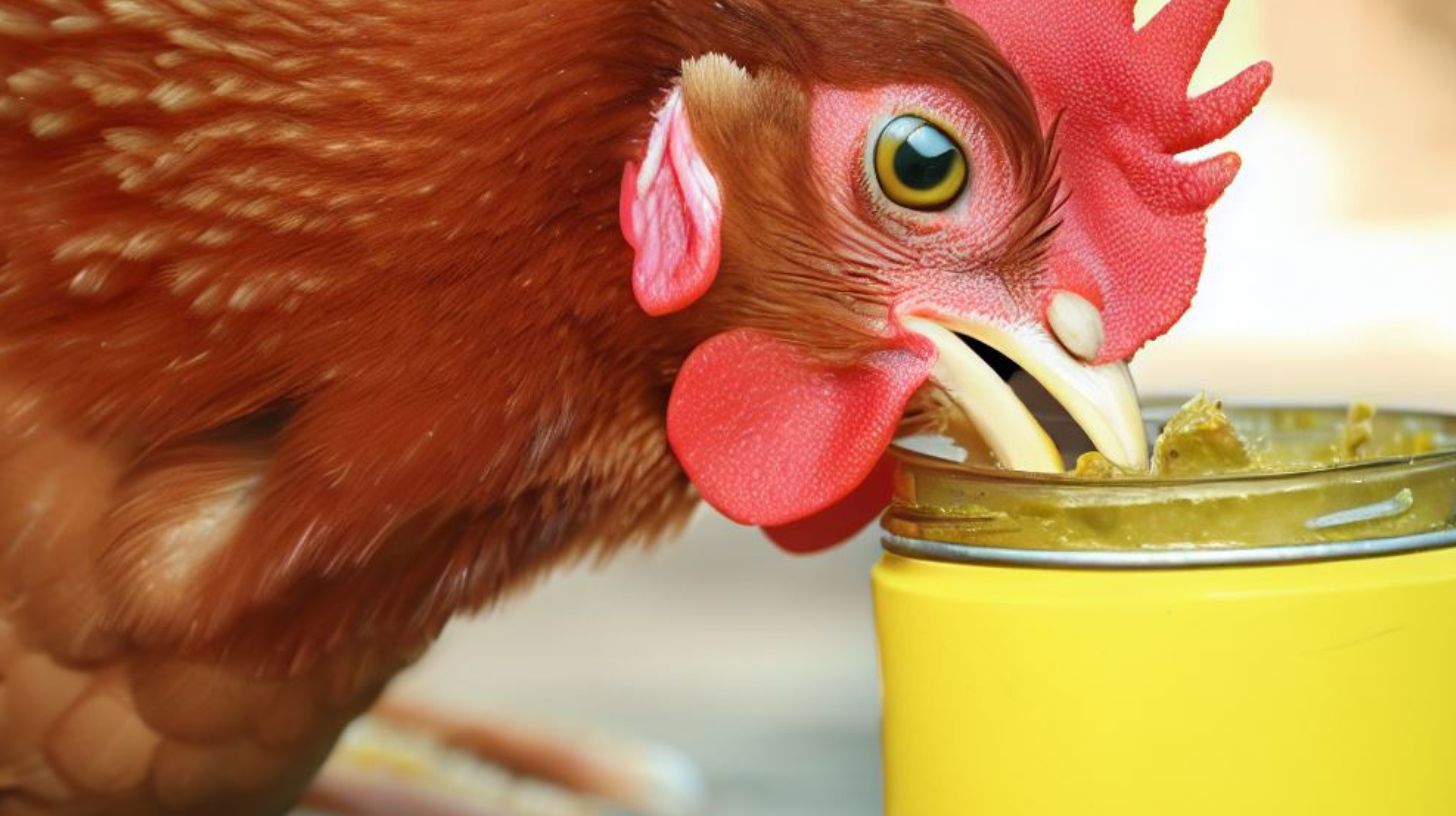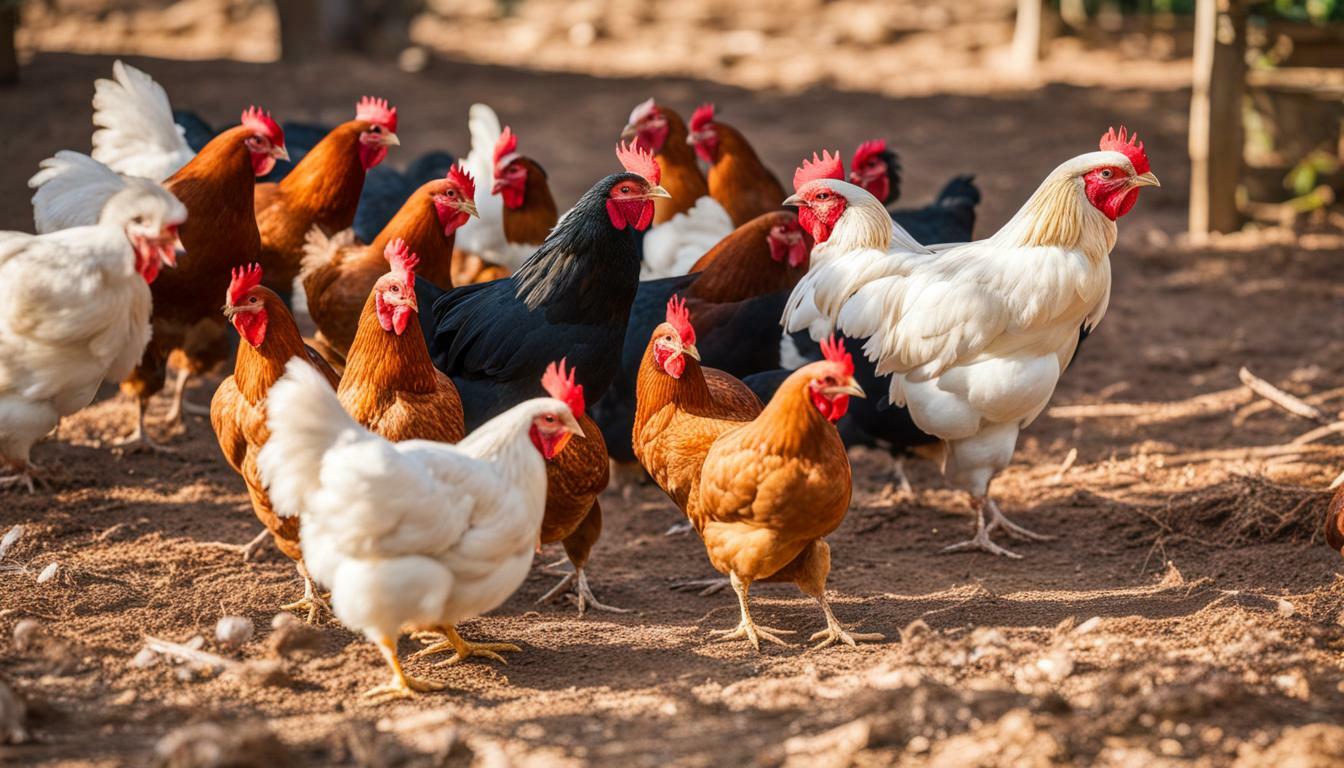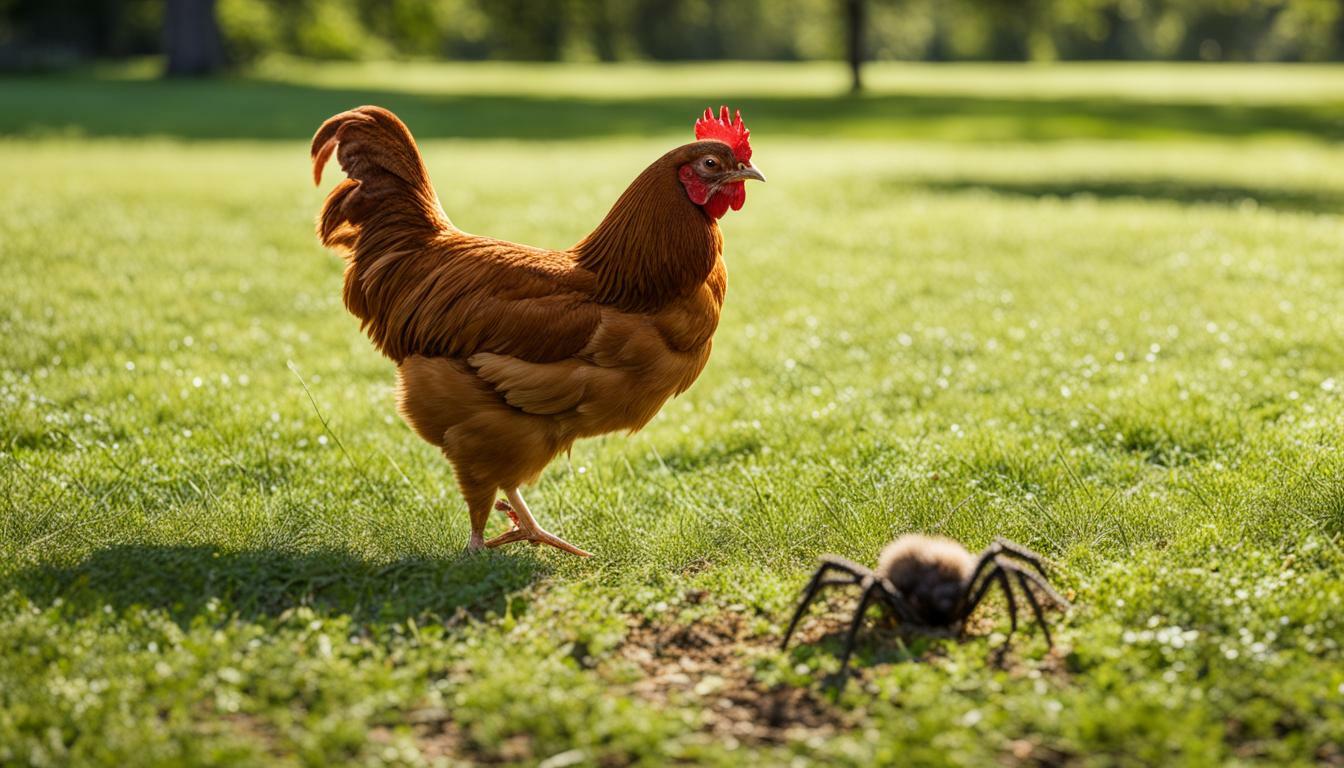Can Chickens Eat Mustard? Discover the Answer Here!

Table of content:
- Can Chickens Eat Mustard Greens?
- Can Chickens Have Mustard?
- Is Mustard Bad for Chickens?
- What Kind of Mustard Can Chickens Eat?
- Can Chickens Eat Dijon Mustard?
- Is Yellow Mustard Ok for Chickens?
- Can Chickens Eat Spicy Mustard?
- Is Mustard Ok for Baby Chicks?
- Does Mustard Hurt Chickens?
- What Condiments Can Chickens Eat?
- Final Thoughts
When raising chickens, it’s important to understand what foods are safe for them to eat. One common question chicken owners have is can chickens eat mustard? The short answer is yes, chickens can eat certain types of mustard in moderation. However, there are some important things to consider before feeding mustard to chickens.
Can Chickens Eat Mustard Greens?
One of the most common types of mustard that is safe for chickens to eat is mustard greens. Mustard greens are a leafy green vegetable that is a member of the brassica family. They are very nutritious for chickens, providing vitamins A, C, K as well as calcium and other minerals.
Mustard greens make an excellent addition to a chicken’s diet. They can be fed fresh or dried as part of their vegetable scraps. Just be sure to feed them mustard greens in moderation, as too much can cause loose droppings.
Can Chickens Have Mustard?
When people refer to “mustard” they often mean the condiment made from mustard seeds. So can chickens eat condiment-style mustard? The answer is yes, but only in very small amounts.
Mustard condiments contain mustard seeds, vinegar, and other seasonings. Mustard seeds themselves are not toxic to chickens. In fact, whole mustard seeds are sometimes used in commercial chicken feed blends.
However, chickens have sensitive digestive systems. Too much vinegar or spicy seasonings found in mustard condiments can upset their stomach or crop. A small taste of mustard on a sandwich or in a salad dressing is fine, but avoid feeding chickens straight condiment mustard.
Is Mustard Bad for Chickens?
Overall, mustard is not inherently bad for chickens when fed properly. Both mustard greens and small amounts of mustard condiments are usually well-tolerated.
However, there are some specific types of mustard that should be avoided:
- Spicy mustard – Hot mustards containing chili peppers or horseradish can irritate a chicken’s crop. Skip the spicy varieties.
- Whole mustard seeds – While crushed mustard seeds are nutritious, whole seeds can be difficult for chickens to digest. Opt for mustard greens or ground mustard.
- Spoiled mustard – Any spoiled, moldy, or rotten foods should never be fed to chickens. This includes old mustard condiments.
As long as you offer the right kinds of mustard in moderation, it can be a healthy treat. Monitor your flock after feeding any new food and discontinue use if any chickens show signs of digestive upset.
What Kind of Mustard Can Chickens Eat?
The most chicken-friendly forms of mustard are mustard greens, ground mustard powder, and small amounts of yellow mustard condiment. Here’s a breakdown of which types of mustard are safe for chickens:
- Mustard Greens – The greens from the mustard plant provide great nutritional value. Chop the leaves into bite-sized pieces before feeding.
- Dijon Mustard – Small amounts of Dijon mustard are okay due to the smooth texture. But limit intake due to the vinegar content.
- Yellow Mustard – Plain yellow mustard is the safest condiment option. Go easy on this stronger-flavored mustard variety.
- Mustard Powder – Ground mustard seed provides flavor and nutrition without the vinegar kick. Use sparingly in homemade chicken treats.
- Spicy Brown Mustard – Avoid offering chickens any mustard with pepper flakes or horseradish, as these can irritate their digestive system.
When trying new mustard varieties, always watch for signs of digestive upset in your flock. Discontinue use if any chicken exhibits loss of appetite, changes in droppings, or lethargy after eating mustard.
Can Chickens Eat Dijon Mustard?
Dijon mustard can be fed to chickens but only in very small quantities. Dijon contains white wine or champagne vinegar which gives it a tangy flavor.
A tiny bit of Dijon from time to time won’t harm chickens. But the higher vinegar content means it’s important to limit the amount you share with your flock. Too much acidic vinegar can irritate a chicken’s sensitive crop and digestive tract.
If offering chickens Dijon, stick to no more than 1/4 teaspoon per bird just occasionally. Mix it into leafy greens or stir it into a small amount of chicken feed to dilute the vinegar concentration. Monitor your birds closely afterwards and avoid feeding it again if any show signs of digestive discomfort.
Is Yellow Mustard Ok for Chickens?
Plain yellow mustard is one of the safer condiment choices for chickens. Yellow mustard gets its vibrant color and tangy flavor from turmeric and vinegar.
Both turmeric and vinegar are fine for chickens in small doses. So yes, small tastes of yellow mustard won’t harm your flock as an occasional treat.
A thin smear of yellow mustard on a cracker or bite of sandwich is plenty. Limit treats to just 1-2 times per week at most. And never give chickens straight mustard from the bottle or jar.
Mixing a small amount of yellow mustard into a salad dressing you’re sharing with the flock can add flavor they’ll enjoy. Just monitor after feeding and avoid using again if any chickens have adverse reactions.
Can Chickens Eat Spicy Mustard?
It’s best to avoid feeding chickens any kind of spicy mustard. Hot mustard varieties like Dijon get their heat from ingredients like horseradish and chili peppers. These spices can irritate a chicken’s sensitive digestive tract.
Condiments marketed as “spicy brown mustard” also tend to contain hot peppers or extra vinegar for a strong kick. While small amounts of regular Dijon or brown mustard are okay for chickens, spicy varieties should be off the menu.
Stick to mild yellow mustard or plain mustard powder when looking to add mustard to your flock’s diet. Skip the spicy mustard to avoid potential stomach upset or other issues. Monitor the health of your chickens closely when introducing any new foods.
Is Mustard Ok for Baby Chicks?
Mustard greens and mustard powder can be fed to baby chicks, but condiment-style mustard should be avoided. Here are some guidelines for feeding mustard to chicks:
- Wait until chicks are 2-4 weeks old before offering any mustard, as their digestive systems are too delicate at a younger age.
- Chop mustard greens finely or grind dried greens into a powder before sprinkling over feed.
- Mix just a tiny amount of mustard powder into feed. Too much can impact nutrient absorption.
- Avoid any prepared mustard products, as the vinegar content is too harsh on young chicks’ digestive systems.
Always monitor chick health closely when introducing new foods. Discontinue any mustard if chicks show decreased appetite, abnormal droppings, or other concerning symptoms. With proper precautions, mustard can be a healthy addition to raise strong chicks.
Does Mustard Hurt Chickens?
When fed improperly or in excess amounts, mustard can cause issues for chickens. Consuming too much mustard at once can lead to:
- Digestive upset – Excess mustard seeds, greens, or vinegar can irritate the crop, proventriculus, and digestive tract.
- Nutritional deficiencies – Large amounts of mustard could prevent chickens from consuming a balanced diet.
- Dehydration – High salt content found in some mustards could potentially lead to dehydration if over-consumed.
However, small, occasional amounts of mustard greens and certain mustard products do not hurt chickens. In fact, the right types of mustard can provide valuable nutrition to supplement a chicken’s regular feed.
The key is moderation. Monitor your flock when offering any new food. Limit mustard to a few times per week and discontinue use if any signs of intolerance appear.
What Condiments Can Chickens Eat?
In addition to mustard, chickens can enjoy small tastes of various other condiments as an occasional treat, including:
- Ketchup – A bit on fried egg scraps or fries is okay. Skip spicy ketchup.
- Mayonnaise – Small amounts add moisture to sandwiches or potato salad.
- Honey – Contains antioxidants and enzymes. No more than 1 tsp per bird.
- Hot sauce – Milder varieties only. Avoid ones with excessive salt.
- BBQ sauce – Sugar content is high, so limit to just a taste.
- Ranch dressing – The herbs and dairy are fine in moderation.
- Salsa – Tomatoes, onion, peppers are healthy. Skip super-spicy kinds.
Always mix condiments into treats versus serving them straight. And monitor your flock’s droppings and behavior after introducing any new human food. Variety is great, but chickens’ health should always come first.
Final Thoughts
To summarize, chickens can eat certain types of mustard in moderation, such as mustard greens and small amounts of some mustard condiments like yellow or Dijon. Avoid feeding chickens spicy mustard, old mustard, or very large portions. Introduce mustard slowly, pay close attention to how your flock reacts, and discontinue use if any chickens show signs of digestive distress. When fed properly, mustard can be a healthy supplemental treat that adds flavor and nutrition to a chicken’s diet. But as with any human food, moderation is key to keeping backyard chickens healthy and productive.
Welcome. I’m Adreena Shanum, the proud owner of this website, and I am incredibly passionate about animals, especially poultry. I founded adreenapets.com as a labor of love, stemming from my desire to share my knowledge and experiences with poultry enthusiasts worldwide.




